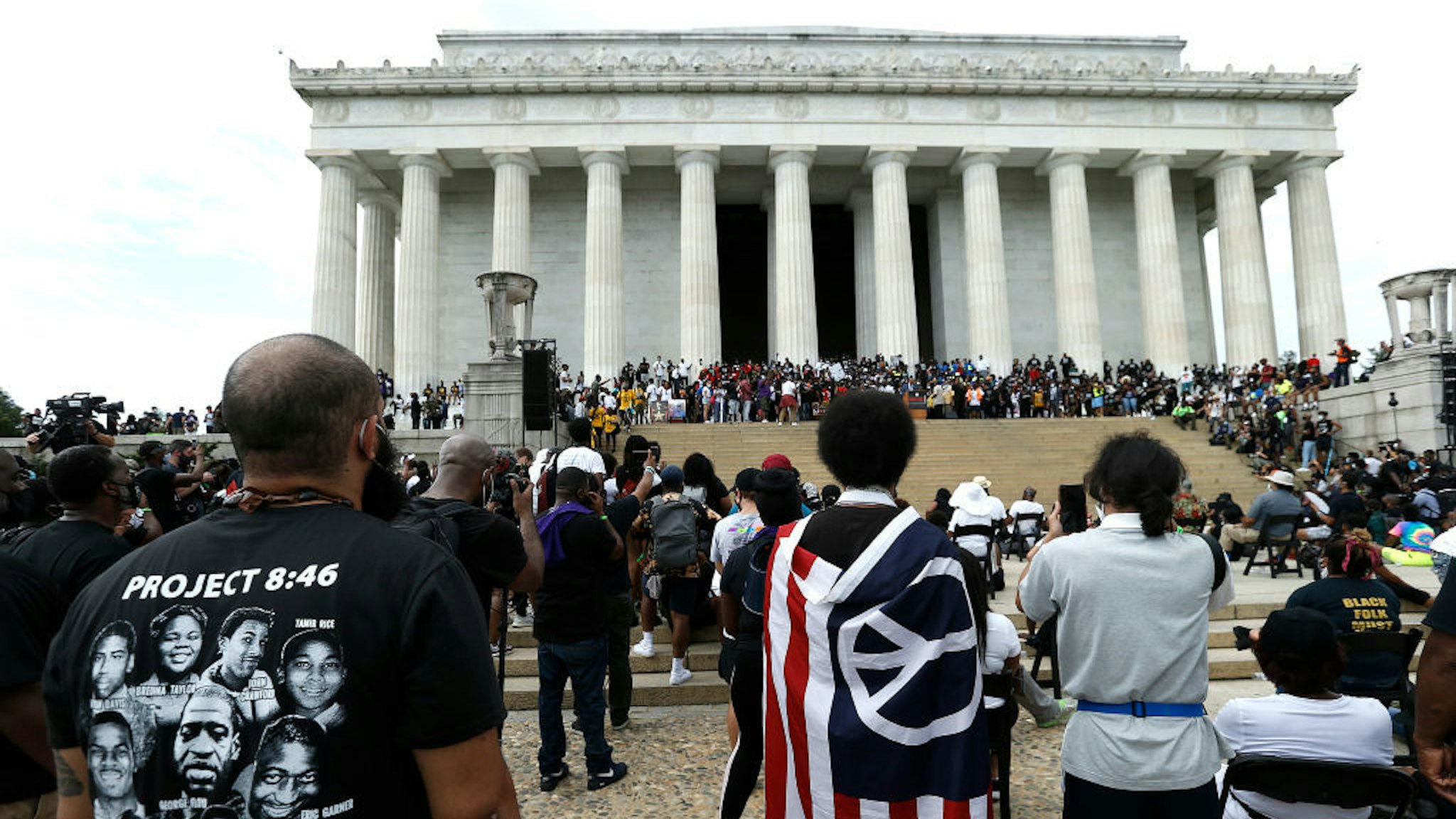A few years ago, the death toll of the Civil War was revised upward. The traditionally accepted number was 618,222 men dead: 360,222 from the North and 258,000 from the South. But one historian, J. David Hacker, used demographic data to estimate that the real total was closer to 750,000 — three quarters of a million Americans dead in the war that ended slavery.
I think about that every time one of our new racialists — Nikole Hannah-Jones of the New York Times, say, or National Book Award Winner Ibram X. Kendi, or Ta-Nehisi Coates — insists that white Americans must pay reparations for slavery. If there were any doubt that the demands made by our radicalized Left will never be satisfied, it is settled for me by that staggering number: 750,000 dead. Americans have paid the price for slavery. We paid it in blood and treasure, in land laid waste and in blood spilled from the veins of patriots both black and white.
The man who lead us through all this — Abraham Lincoln, whose two terms as president spanned the entire war — said very explicitly that during those anguished years we were paying a devastating cost to make amends for our sins. Lincoln, a masterful rhetorician and a self-taught expert in the literary traditions of the West, wrestled grievously with what the ruinous war could mean theologically.
His conclusion was that only the mystery of God’s justice, that great and terrible arc of sin, judgment, and redemption which unfolds throughout the histories of the Old Testament, could make sense of it all. In March of 1865, just months before the end of the war, Lincoln delivered his second inaugural address. It is one of the most striking and memorable passages of American oratory. Lincoln proclaimed:
If we shall suppose that American Slavery is one of those offences which, in the providence of God, must needs come, but which, having continued through His appointed time, He now wills to remove, and that He gives to both North and South, this terrible war, as the woe due to those by whom the offence came, shall we discern therein any departure from those divine attributes which the believers in a Living God always ascribe to Him? Fondly do we hope — fervently do we pray — that this mighty scourge of war may speedily pass away. Yet, if God wills that it continue, until all the wealth piled by the bond-man’s two hundred and fifty years of unrequited toil shall be sunk, and until every drop of blood drawn with the lash, shall be paid by another drawn with the sword, as was said three thousand years ago, so still it must be said “the judgments of the Lord, are true and righteous altogether.”
God, said Lincoln, was working out in his providence a sequence of events too vast and interlocking for the mind of man to comprehend. It is a dreadful thing that humankind, being in sin, cannot start from perfect beginnings. We must be gradually wrestled and shocked out of barbarism. But so it is: there was simply no way out of permitting slavery for the Founding Fathers if the country they founded was to survive. Yet once the time came, the blood toll for that injustice still came due.
Lincoln understood this, which is why he knew that only God could mete out the requisite punishment. Note his emphasis on God’s precision and control: his justice, says Lincoln, will continue until exactly the time that he has judged fit. No other person has anything like the kind of omniscience to make that determination.
And note, too, Lincoln’s conclusion: the minute the war was done, he said, “With malice toward none; with charity for all…let us strive on to finish the work we are in; to bind up the nation’s wounds.” Once the bloodletting was over, once the dust had settled, there was to be no more payment exacted. As God is sovereign to enact justice, so he is sovereign to put an end to suffering.
That is why reparations, besides being manifestly impracticable, strike me as an offense to God and man. They dishonor those 750,000 dead men, whose deaths paid dearly for the sin of slavery. They dishonor the words of Lincoln, who best of all understood how terribly the justice of God had been satisfied in the Civil War. And they dishonor God himself, whose right and power alone it is to mete out punishment, and peace.
More from Spencer Klavan: Why The Whole Premise Of The 1619 Project Is Absurd
Spencer Klavan is host of the Young Heretics podcast and assistant editor of the Claremont Review of Books and The American Mind. He can be reached on Twitter at @SpencerKlavan.

